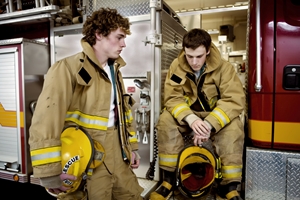The job of a first responder can be incredibly stressful and begin to take a toll on his or her well-being. If servicemembers aren't taking the proper measures to ensure that they are as stress-free as possible, they may become more likely to develop conditions like post-traumatic stress disorder.
If you are a first responder, you know firsthand that the public expects a lot from you, which can feel like a lot of pressure. The intensive nature of your daily work can also cause burnout unless you are taking time to relax and ensure that your mental and physical health is in check. Here are a few ways that you can make sure that you are effectively managing your stress.
1. Try to leave work at work
Once work is over, first responders should do their best to free their minds of the stresses associated with their day. It could be beneficial to begin a daily ritual at the end of a shift to switch your mind to another state – one that is free of the anticipation or anxiety that may be experienced at work. For example, changing out of your uniform at the end of the day and going to the gym or meeting friends for a coffee before heading home can help your mind free itself of any anxiety that tends to stick with you after your shift.
Isolation and social withdrawal can lead to depression and other serious conditions. Simply surrounding yourself with loved ones and participating in hobbies or activities with them can effectively balance your work and personal life. Exercising releases endorphins that drastically improve one's mood and will simultaneously work to help you keep up with the physical demands of the job. Other hobbies like yoga will encourage relaxation while reducing anxiety and depression. Journaling or reading may not immediately seem like stress-reducing hobbies, but they have been known to help refocus your thoughts and improve your communication skills if you plan on seeing a therapist to talk about your anxiety.
2. Consume a healthy diet
As a first responder, you might not have many opportunities to sit down and eat a healthy breakfast or lunch. However, this does not mean that you should start eating fast food or rely on unhealthy snacks for nourishment. According to the Substance Abuse and Mental Health Services Administration, consuming unhealthy, processed foods can lead to more than just weight gain and a lack of sufficient nutrients, but mental side effects as well.
Irritability, inability to concentrate and reduced energy levels are all associated with an unhealthy diet. Not only do these side effects make it difficult to perform daily tasks, but they also increase your risk of feeling stress and anxiety. Consuming plenty of vegetables and lean protein will keep your head clear and make it easier to focus.
3. Seek support
The stress that comes from dealing with emergency situations, injuries and death can be too much to handle on your own. Although loved ones and hobbies can temporarily take your mind off of these stressors, it is best to seek help as well.
There are support groups and counselors that can help first responders experiencing serious anxiety and stress as a result of traumatic events. Local support groups will give you the opportunity to meet others who went through similar events and are experiencing the same emotions.
Similarly, working with an individual therapist will help you recover from a traumatic experience and maintain a healthy lifestyle. Once you're able to establish a positive, healthy outlook and daily routine, your ability to cope with stress will drastically improve.

